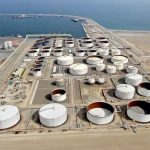The world’s top oil exporter Saudi Arabia is going after Russia’s oil market share in Europe with deeply discounted Arab Light crude at up to three times the usual volumes, people with knowledge of European refiners’ operations told Bloomberg on Thursday.
The Saudis, OPEC’s de facto leader and top producer, are aiming to grab market share from Russia in the oil price war it launched on Moscow to punish it for refusing to back deeper OPEC+ production cuts last week. And Europe is a key battleground in the new oil wars as Russia’s Urals crude has traditionally been a popular choice among European refiners.
Saudi Arabia hasn’t seen Europe as a core market in recent years because it has prioritized continuously growing demand in Asian markets. But in the war of market share, the Kingdom is now looking to squeeze Russian oil out of Europe by offering deep discounts which make its Arab Light crude priced at as low as $25 a barrel at Rotterdam, much lower than the price of Urals.
If prices of Urals and other crude grades going into Europe don’t drop to match the Saudi discounts, Saudi Arabia is set to “push out” the Urals grade from the refiners’ diet, Energy Aspects’ chief oil analyst Amrita Sen said in a note, as carried by Bloomberg.
Related: The Reason Why Russia Refused To Cut Oil Production
The price of Urals has also slumped in recent days, but it needs to drop further to become appealing to European refiners, given the hefty Saudi discounts, traders told Reuters on Wednesday.
Saudi Arabia has promised to flood the oil market with an extra 2.6 million bpd of oil from April, while its fellow OPEC producer and ally, the United Arab Emirates (UAE), pledged an additional 1 million bpd in supply. This will result in a total increase of 3.6 million bpd in global oil supply from OPEC’s heavyweights at a time of depressed oil demand due to the coronavirus outbreak and at a time of crashing oil prices, following the abrupt end to the OPEC+ deal last week.
Russia, for its part, claims it can live with $25 oil for years and says it can raise its oil production by 200,000 bpd to 300,000 bpd in the short term, with a potential for up to a total increase of 500,000 bpd.





